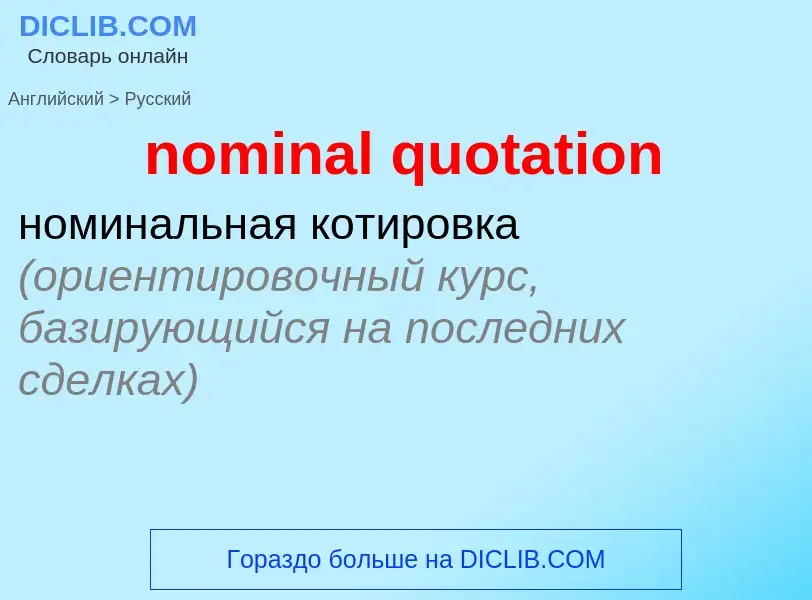Translation and analysis of words by ChatGPT artificial intelligence
On this page you can get a detailed analysis of a word or phrase, produced by the best artificial intelligence technology to date:
- how the word is used
- frequency of use
- it is used more often in oral or written speech
- word translation options
- usage examples (several phrases with translation)
- etymology
nominal quotation - translation to russian
Definition
Wikipedia
In linguistics, the term nominal refers to a category used to group together nouns and adjectives based on shared properties. The motivation for nominal grouping is that in many languages nouns and adjectives share a number of morphological and syntactic properties. The systems used in such languages to show agreement can be classified broadly as gender systems, noun class systems or case marking, classifier systems, and mixed systems. Typically an affix related to the noun appears attached to the other parts of speech within a sentence to create agreement. Such morphological agreement usually occurs in parts within the noun phrase, such as determiners and adjectives. Languages with overt nominal agreement vary in how and to what extent agreement is required.




.png?width=200)




